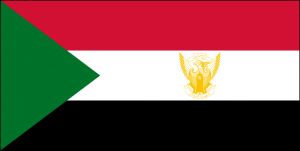Language/Sudanese-arabic/Vocabulary/Days-of-the-Week
Hi Sudanese Arabic learners! 😊
In this lesson, we will learn the days of the week in Sudanese Arabic with cultural information and interesting facts. Knowing the days of the week is essential for daily communication and planning your activities. We will also provide examples of how to use them in context.
Don't forget to check out the Find native speakers and ask them any questions you may have. And, if you want to improve your Sudanese Arabic vocabulary, visit our Arabic vocabulary page.
Let's get started!
Introduction[edit | edit source]
Sudanese Arabic shares similar vocabularies for the days of the week with Standard Arabic but also has some variations in pronunciation and usage.
Take some time to dive into these other pages after completing this lesson:Say Hello and Greetings in Sudanese Arabic, Clothes, Drinks & Health.
The Days of the Week[edit | edit source]
Here are the days of the week in Sudanese Arabic:
| Sudanese Arabic | Pronunciation | English Translation |
|---|---|---|
| الأحد | elahad | Sunday |
| الإثنين | elitsnen | Monday |
| الثلاثاء | elthelatha | Tuesday |
| الأربعاء | elarbaa | Wednesday |
| الخميس | elkhamees | Thursday |
| الجمعة | eljuma'a | Friday |
| السبت | elsabt | Saturday |
In Sudan, the workweek starts on Sunday and ends on Thursday. However, Friday is considered a day of worship and rest, and many businesses and institutions are closed. Saturday is a working day, but it's not as busy as the other weekdays.
Cultural Information and Interesting Facts[edit | edit source]
- Friday is the most important day of the week in Islam, and it's the day of congregational prayer, where Muslims gather in mosques to pray.
- In rural areas, many farmers and cattle breeders name their farm animals after the days of the week. For instance, a dairy farmer might name his cows "Sunday," "Monday," and so on.
- Many Sudanese people believe in superstitions related to the days of the week. For example, it's said that if a baby is born on a Thursday, they will be intelligent and wise.
- Traditional Sudanese weddings usually take place on a Thursday or a Friday.
- In Sudanese Arabic, "today" is "النهارده" (elnahar-da), while "tomorrow" is "بكرة" (bokra).
Dialogue[edit | edit source]
Ahmed and his colleagues are talking about the schedule for the upcoming week:
- Ahmed: الأحد بنلتقي في الساعة 8 صباحًا. (elahad benltaki fi saa'a taman-een sabahًا) (We will meet on Sunday at 8:00 am.)
- Yasmin: يعني الاثنين بنوصل المكتب في نفس الوقت؟ (ya'ni elitsnen benwsl elmaktab fi nafs elwaqt?) (So, on Monday, we will arrive at the office at the same time?)
- Ahmed: ده بنوصل في الساعة 9 صباحًا. (da benwsl fi saa'a tesaa sabahًا) (No, we will arrive at 9:00 am.)
- Ziad: الخميس عطلة في الشغل، أنا هروح المدينة. (elkhamees etla fi elshoghl, ana harooh elmadina) (Thursday is a day off at work, I will go to the city.)
Conclusion[edit | edit source]
Congratulations, we have learned the days of the week in Sudanese Arabic! Remember to practice using them in daily conversations to improve your fluency. Don't hesitate to ask questions and seek clarification from native speakers. Join the Polyglot Club community to meet and practice with language learners from all over the world. 😊
➡ If you have any questions, please ask them in the comments section below.
➡ Feel free to edit this wiki page if you think it can be improved. 😎
Impressive work on finishing this lesson! Explore these additional pages to enhance your understanding:Geography, Food, Express Surprise & Count to 10.

